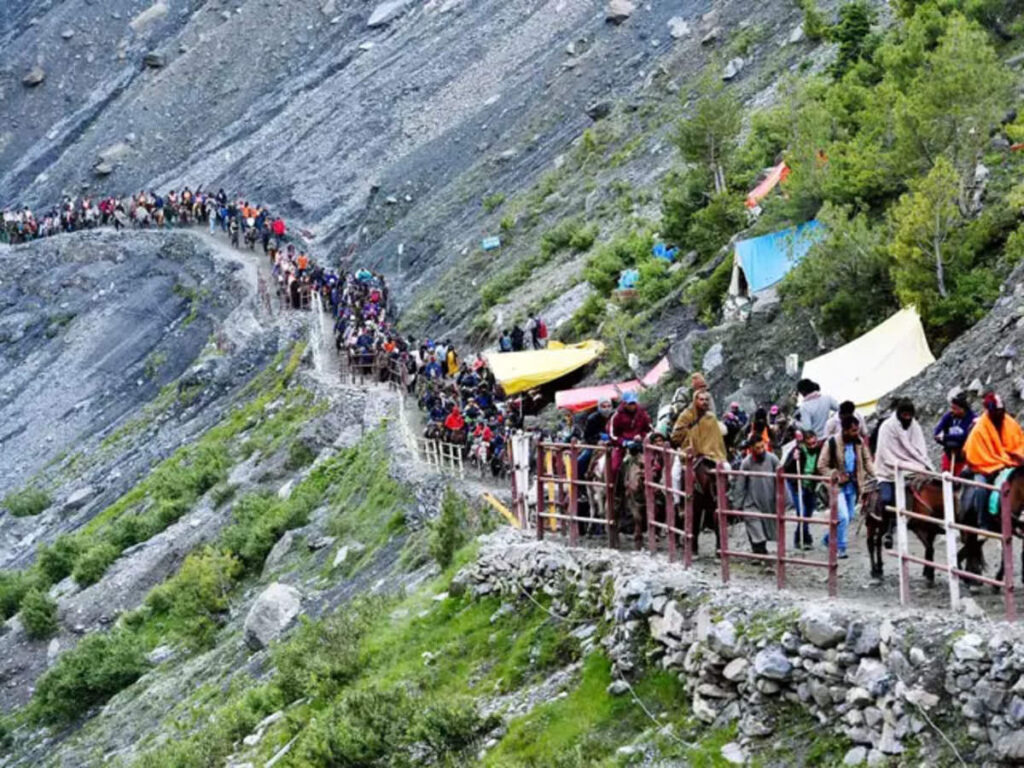If you plan a trip to Kashmir, don’t forget to check out our ultimate “What Document Require Kashmir Trip” checklist and Learn more about this beautiful place here.

“Paradise on Earth,” suddenly, Kashmir comes into our mind as we read these words. Kashmir is a region with natural beauty and rich cultural heritage located in the northern part of India and the eastern part of Pakistan. Its landscape boasts picturesque valleys, towering mountains, pristine lakes, lush forests, and vibrant gardens. Poets, artists, and travellers have been captivated by its allure for centuries.
In recent years, efforts have been made to promote sustainable tourism in Kashmir., aiming to strike a balance between showcasing its extraordinary beauty and preserving its delicate ecosystem and cultural identity. As Kashmir continues to evolve, its timeless beauty and cultural treasures remain a testament to the enduring appeal of this captivating region. Let’s explore “What Document Require Kashmir Trip” before planning a fantastic trip to this paradise.
Also Read: Channarayana Durga Fort Trek
Here’s What Document Requires Kashmir Trip
1. Passport and Visa
To travel to Kashmir, all foreigners must possess a valid national passport and an Indian Visa or e-visa. You can apply for an Indian Visa through the Indian High Mission or opt for the convenient e-Visa option available online. Here’s a step-by-step guide:
- Apply for an e-visa through the official Indian government website.
- Fill out the online form with personal information, travel details, and passport information.
- Upload a digital passport-size photo and a scanned copy of your passport bio page.
- Ensure your passport has at least six months’ validity from your intended arrival date in India.
- Prepare the required documents: visa application form, travel itinerary, proof of accommodation, financial documents, and a letter of invitation from your host in India (if applicable).
- Pay the necessary visa fee online, which varies based on nationality and visa type.
- After successful submission and payment, you’ll receive an electronic travel authorization (ETA) via email. This isn’t the final visa but an approval to travel.
- Upon arrival in India, present your ETA and passport at the immigration counter for verification. A visa sticker will be placed on your passport, permitting you to enter India.
- Keep all documents in a safe place to avoid travel discrepancies.
Remember, specific requirements and procedures can vary based on your nationality and the Indian diplomatic mission in your country. Always consult the official website of the Indian High Commission or Embassy for the most accurate and up-to-date information.
2. COVID-19 Test and Certificate
While the COVID-19 situation in India and Kashmir is generally safe, travellers must carry a COVID-19 certificate. Follow these steps to obtain one:
∙ Testing centres typically provide a certificate after conducting COVID-19 tests (PCR, rapid antigen, etc.). You may receive it via email or as a physical document.
∙ Many countries have online portals or apps for registering and downloading vaccination certificates. In India, the CoWIN portal is used for this purpose.
∙ Healthcare providers administering vaccines often provide a physical or digital certificate. Inquire with them about the process.
Additionally, follow these COVID-19 protocols and precautions:
- Wear masks in indoor public spaces and crowded areas.
- Maintain a safe distance from others.
- Practice regular hand hygiene with soap and water or hand sanitizer.
- If unwell, especially with COVID-19 symptoms, stay home and seek medical advice.
- Follow quarantine guidelines if you’ve been in close contact with a COVID-19-positive individual.
- Get vaccinated if recommended by health authorities.
- Stay updated on travel advisories and guidelines from health authorities.
- Be vigilant for COVID-19 symptoms and seek medical attention if severe symptoms develop.
3. Travel Insurance
Consider obtaining travel insurance when visiting Kashmir or any other destination. Travel insurance is a safety net for unexpected medical expenses and other travel-related emergencies. Here’s what to consider:
- Check what medical expenses are covered, including emergencies, hospitalization, medications, and COVID-19-related costs.
- Verify if the insurance provider has a network of healthcare facilities and providers in your destination.
- Understand coverage limits and deductibles associated with the policy.
- Some providers offer 24/7 emergency assistance, which is invaluable in a medical emergency.
- If travelling during the pandemic, confirm that the policy covers COVID-19-related expenses.
Before travelling to Kashmir, research local healthcare facilities and services and check for specific health or travel advisories for the region. Remember that health insurance provides financial and practical support in unforeseen medical situations while travelling. Top of Form
4. Permits and Permissions
Certain areas and activities in Kashmir, such as Ladakh, Amarnath Yatra, and trekking, require permits and permissions for security, environmental, and logistical reasons. Here’s how to obtain them:
Ladakh Permit:
Due to their strategic significance, visitors to specific areas in Ladakh must obtain an Inner Line Permit (ILP). You can apply for this permit online through the official Ladakh administration website or in person at designated government offices. The process typically involves providing identification documents, travel itineraries, passport-sized photographs, and other relevant information. It’s advisable to apply well in advance of your travel dates.
Amarnath Yatra:

Due to its high religious significance and challenging terrain, the Amarnath Yatra requires special permissions. Pilgrims must register for the Yatra through the official website of the Shri Amarnathji Shrine Board (SASB). The board issues Yatra Permits to registered pilgrims, specifying the dates and routes for the pilgrimage.
Trekking:

Trekking in Kashmir may require trekking permits, especially in ecologically sensitive regions. Different trekking routes might have varying permit requirements, typically obtained from local tourism authorities. Ensure you have a precise itinerary and trek details when applying for these permits.
Remember to carry the issued permit with you during your trip, as authorities may require it at various checkpoints. The application fees for Inner Line Permits in Ladakh usually include an Environment fee, a Red Cross Fund fee, and an Inner Line Permit fee per day per person. Be aware that prices may change according to government rules.
5. Essential Items and Tips
I. Clothing and Accessories
Kashmir experiences a diverse range of weather and climate conditions throughout the year. Its climate is influenced by its geographical location, altitude, and the surrounding mountain ranges. The climate in Kashmir can be broadly categorized into four seasons: spring, summer, autumn, and winter.
- Spring (March to May): Spring is a transitional season in Kashmir. During this time, temperatures start from 5°C to 15°C (41°F to 59°F).
- Summer (June to August): Summer is the warmest season in Kashmir. Average temperatures during this time range from 20°C to 30°C (68°F to 86°F).
- Autumn (September to November): Autumn is marked by cool temperatures. As the season progresses, temperatures begin to drop, and the average range is around 10 °C to 20°C (50°F to 68°F).
- Winter (December to February): Winter is the most iconic season in Kashmir due to its heavy snowfall and cold temperatures. Average temperatures range from -2°C to 7°C (28°F to 45°F).
ii. Medicines and First Aid Kit
Travellers may face health issues like altitude sickness, cold, cough, fever, and diarrhoea. Altitude sickness from rapid ascent causes nausea, dizziness, and shortness of breath. Prevent with gradual ascent. Cold, cough, and fever are from climate changes and close contact. Hygiene helps prevent. Diarrhea from contaminated food/water can be avoided by drinking bottled water and eating cooked food.
Insect bites spread diseases like malaria; protect with repellent and nets. Sunburn risks increase in sunny destinations; wear high-SPF sunscreen and protective clothing. Check vaccines for specific destinations. Different areas have unique health risks. Research helps.
Kashmir’s electricity and internet can be unreliable due to complex circumstances. Prepare for power cuts with power banks. Internet connectivity varies; rely on offline info. Gadgets like mobiles and cameras are essential; laptops/tablets are helpful, but power/internet may be limited. Use portable chargers and adapters. Waterproof bags protect from weather changes.
Extreme temperatures can affect devices. Carry necessary documents, plan thoroughly, pack right, and respect customs for a smooth journey to Kashmir. Enjoy its beauty, hospitality, and culture.
Final Analysis
Kashmir is a masterpiece of beauty—valleys showing flowers, beautiful lakes reflecting snow-capped peaks, and meadows stretching into eternity. The tranquillity of Dal Lake, adorned with traditional houseboats, offers a serene retreat. As the seasons dance, each brings its charm. The locals’ welcoming nature and deep-rooted cultural traditions contribute a lively essence, transforming Kashmir into a captivating destination renowned for its breathtaking beauty and genuine affection. All foreigners entering India can travel to Kashmir with a valid national passport and a valid Indian Visa or e-visa. An Indian Visa is available through the Indian High Mission. E-Visa is also available online.
You can visit the official Indian Government sites of the relevant Indian Embassy or consulate for up-to-date information regarding travel to Kashmir.




